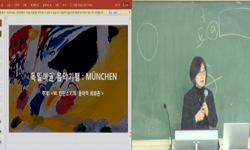2003년 3월 15일 이후 유럽의 철도화물 수송은 자유화를 맞이하였다. 유럽위원회는 수세기 동안 국가의 비호아래 독점적인 지위를 유지해 왔던 철도수송이 경쟁의 논리를 수용함에 따라 경제...
http://chineseinput.net/에서 pinyin(병음)방식으로 중국어를 변환할 수 있습니다.
변환된 중국어를 복사하여 사용하시면 됩니다.
- 中文 을 입력하시려면 zhongwen을 입력하시고 space를누르시면됩니다.
- 北京 을 입력하시려면 beijing을 입력하시고 space를 누르시면 됩니다.
EU의 철도통합과 프랑스, 독일 철도산업의 구조조정: 초국가적 공공정책의 출현이 국내 정책에 미치는 영향에 대한 연구
한글로보기https://www.riss.kr/link?id=G3735871
- 저자
-
발행기관
-
-
발행연도
2012년
-
작성언어
Korean
-
주제어
유럽연합 ; poicy paradigm ; public policy network ; European Union ; european integration of railways ; restructration of railways ; Trans european railway network ; railway policy ; railway industries ; epistemic community ; 공공정책 ; 공공정책의 표준화 ; 철도정책 ; 철도통합 ; 철도산업 ; 프랑스 ; 독일 ; 구조조정 ; 철도자유화 ; 유럽화 ; 철도의 유럽화 ; 정책공동체
-
자료형태
한국연구재단(NRF)
-
0
상세조회 -
0
다운로드
부가정보
국문 초록 (Abstract)
2003년 3월 15일 이후 유럽의 철도화물 수송은 자유화를 맞이하였다. 유럽위원회는 수세기 동안 국가의 비호아래 독점적인 지위를 유지해 왔던 철도수송이 경쟁의 논리를 수용함에 따라 경제성장을 촉진하고 국제적인 물류와 산업인프라 확충에 획기적인 변화를 가져올 것으로 기대하고 있다. 그러나 유럽의 교통시장에 자유주의적 경쟁의 논리를 부여한지 몇 년이 지난 후의 결산은 국가별로 큰 편차를 보인다. 특히 프랑스와 독일의 화물열차수송 부문은 이러한 국가별 차이점을 뚜렷하게 보여준다. 독일의 철도 공동체(철도행정 및 경영주체와 철도산업체)는 공격적으로 철도의 유럽화(europeanization)에 나서고 있는 반면에 프랑스의 철도공동체는 철도의 국제화에 대해 훨씬 보수적으로 대응하고 있는 것처럼 보인다. 본 연구는 초국가적인 차원에서 정책의 표준화를 둘러싼 주권 국가들 간의 협력과 경쟁이 어떻게 단일한 정책으로 구성되어 국내에 적용되는지 분석한다. 특히 공공교통정책에 있어서 가장 대표적인 철도분야의 협력을 다룸으로써 공적인 국내의 정책규범이 초국가적인 시장의 규범으로 대체됨에 따라 발생하는 산업구조조정과 사회적인 갈등의 해소를 모색하고자 한다.
다국어 초록 (Multilingual Abstract)
The fret market of European railway has been liberalized since March 2003. The Commission of EU expects that the european railway transportation will promote economic development and radically change international material distributions and industrial...
The fret market of European railway has been liberalized since March 2003. The Commission of EU expects that the european railway transportation will promote economic development and radically change international material distributions and industrial infrastructure provisions. This expectation is based on the EU's ideas that breaking with monopolistic status under the public authorities, the railway transportations are accepting the liberal policy norms. Despite these optimistic prospect, the results of railway reforms have been differentiated from one country to another since they accepted the liberalization standard of EU. Especially, the railway transportation of fret between France and Germany show us clearly these differences. Although the German railway policy community challenge aggressively the europeanization of its railway, their French counterpart copes with it in more passive manners. This study analyses how the cooperation and rivalry on the internationalization of public policy transformed unified public policy on the european level and were applied to the national public policy. Especially, it observes the cooperation of railways that represented national transport policy and understand the logics of industrial restructuring and social conflicts caused by transnat











